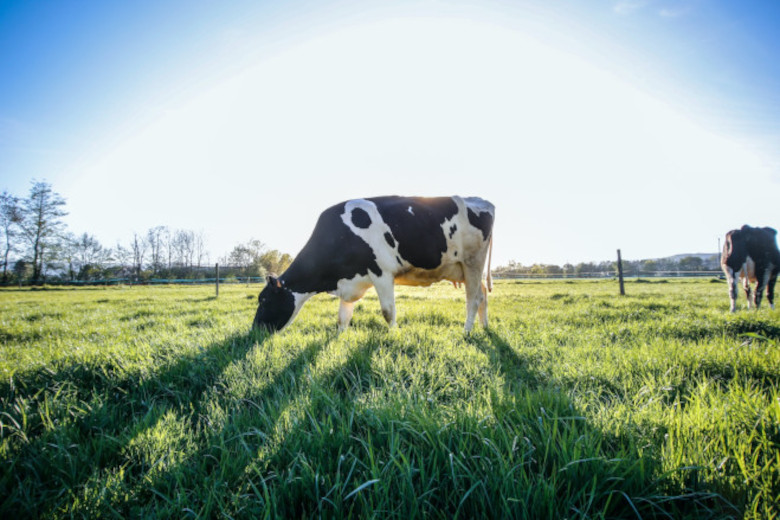The global supply chain, typically an afterthought for consumers accustomed to acquiring any product on-demand, is now top of mind for many people. Supply chain and logistics management are receiving increased scrutiny as companies face intense pressure to fill shelves, lower costs, and increase efficiencies.
This is especially true for dairy farmers grappling with rising production costs and unique logistical challenges that are shrinking revenue and harming business viability. While one assessment found that dairy industry executives remain optimistic about the sector’s overall outlook, many identify supply chain disruptions as one of the top concerns for the year ahead.
Their concerns are not without merit. The well-documented semiconductor chip shortage significantly curtailed vehicle production, including specialized dairy transports. At the same time, a national trucker shortage, continued pandemic disruptions, inflation, fuel costs, the war in Ukraine, and a variety of other factors are making logistics a significant challenge for dairy producers.
That’s why many companies are looking to digitalization to improve supply chain logistics. When implemented effectively, these efforts can enhance dairy producer logistics by improving recruitment, responsiveness, and sustainability.
Recruitment
Today’s dairy supply chain is powered by an expansive network of trucking companies, brokers, and asset-based carriers. Right now, these entities are frighteningly understaffed, making it more difficult for dairy producers to find reliable, affordable shipping for their market-ready products.
With the average driver approaching 50 years old, many existing drivers are aging out of the profession or leaving for jobs that better fit their lifestyle. It’s estimated that the shipping industry is short 80,000 drivers, and with the average trucking company experiencing turnover rates of 95 percent, there is an urgent need to enhance recruitment efforts.
Fortunately, shipping companies have millions of eligible recruits they can target. The American Trucking Association reports that more than 10 million Americans are licensed commercial drivers, more than triple the number needed to operate the country’s fleet.
Technology can’t solve every problem, but it can help. For example, emerging professionals don’t want to follow the same arduous workflows that too often define shipping workflows. They don’t want to make dozens of calls to book a load or navigate fax machines to document deliveries.
Instead, they want to use powerful, intuitive mobile apps that are as easy to use as the ones they use to book a ride, order food, or consumer media. These technologies can engage a new generation of workers, giving new recruits the technology and functionality that simplifies their work and mitigates some of the recruiting challenges preventing supply chains from achieving optimal performance.
Responsiveness
Artificial Intelligence (AI) and Machine Learning (ML) technologies can improve logistical outcomes for dairy producers, making them more responsive to real-time challenges.
For instance, companies can improve shipping efficiency and delivery with AI-generated load routing and building, maximizing the amount of cargo on a load, and allowing deliveries to adapt to changing conditions. If one travel route is disrupted by a weather event, AI systems can adjust on the fly by suggesting adjusting delivery times, scheduling team drivers, or traveling a different route.
In addition, these technologies can replace arduous back-office tasks, performing days of work in just a few minutes, giving companies the insights needed to make more proactive decisions, which is key to creating a more responsive supply chain. As a recent McKinsey & Co. analysis encourages, “To build resilience, manage proactively.”
Consumers are ready for this change. According to a new study by Orcale, more than three-quarters of consumers say they would “trust and be more willing to buy from a company if they knew it used advanced technologies like artificial intelligence to manage its supply chain.”
Today’s global supply chains are complicated, interconnected systems contingent on a variety of stakeholders to be effective. AI and ML can enhance these practices, allowing all parties to be more responsive.
Sustainable
Food waste is endemic through the supply chain. It’s estimated that up to 40 percent of the U.S. food supply is wasted each year, and 40 percent of that comes through the supply chain. For dairy products, these numbers are even higher. A 2018 analysis found that distributors discard 55 million tons of dairy annually because of waste and spoilage, and COVID-19-related disruptions have only exacerbated these challenges.
Several technologies, including Internet of Things (IoT) temperature sensors, can help reduce waste and enhance sustainability.
When dairy producers and their supply chain networks have comprehensive data sets, they can leverage these insights to perform real-time monitoring to reduce waste and optimize processes, making them more competitive and effective now and in the years ahead. Underscoring the importance of digitalization for supply chain management, a Gartner analysis found that more than a quarter of supply chain decisions will be made using intelligent edge ecosystems by 2025.
As a result, dairy producers using these powerful technologies can expect to reduce food waste and time spent on recording or aggregating relevant data points, collectively making their operations more sustainable.
Improving Dairy Supply Chains with Digitalization
Dairy farmers and their network of distributors play a pivotal role in supporting the global food ecosystem for growing populations. The ongoing pandemic has inflicted significant disruption that’s forcing innovation in new and meaningful ways.
Digitalization can’t solve every problem, but it can help dairy producers improve their recruitment, responsiveness, and sustainability in a modern food ecosystem.
The opinions expressed in this column are that of the author only. They do not necessarily reflect the views of Dairy Foods or its parent company, BNP Media.
